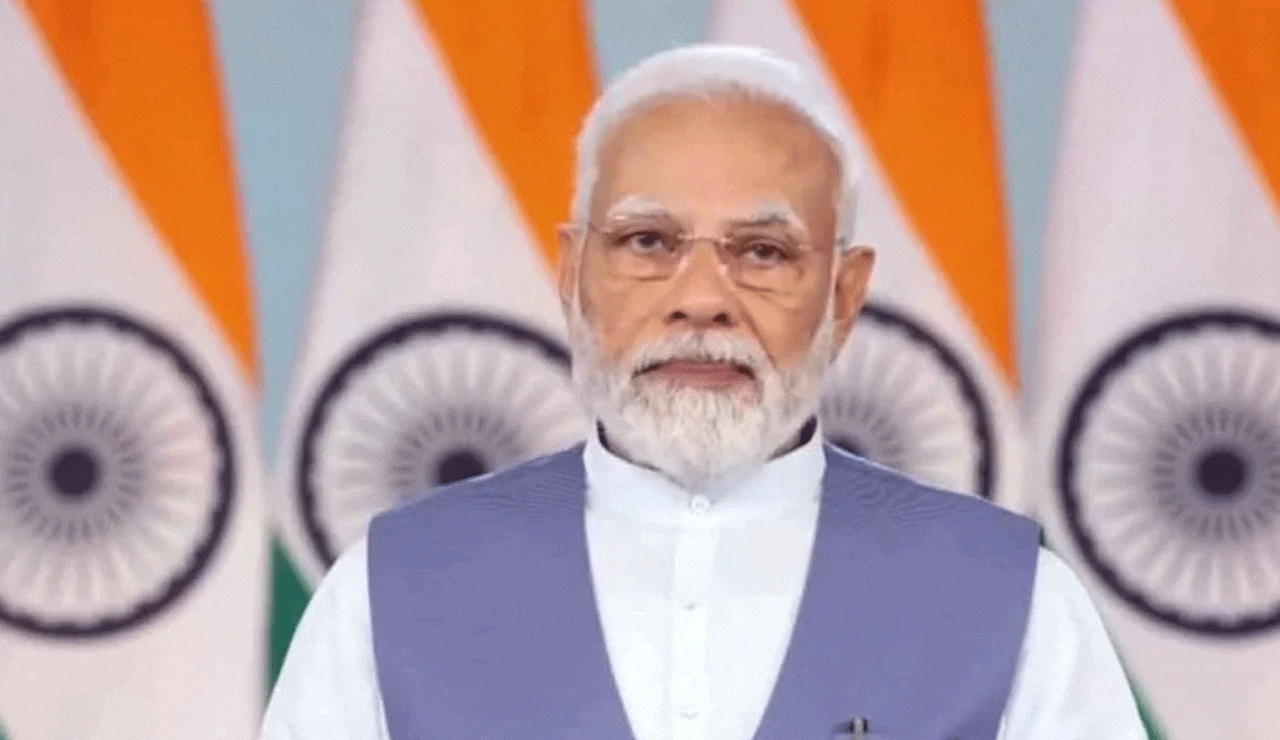PM Modi highlights opportunity to reshape global climate finance
Prime Minister Narendra Modi has highlighted that there is a strong opportunity to reshape global climate finance with greater transparency and common standards.

New Delhi: Prime Minister Narendra Modi has highlighted that there is a strong opportunity to reshape global climate finance with greater transparency and common standards.
The Prime Minister, in a post shared by PMO India on its X handle on Tuesday, referred to an article by Union Minister Bhupender Yadav, which underscores India’s draft Climate Finance Taxonomy and growing domestic green finance as examples of pragmatic leadership that can guide a more effective global architecture for the future.
Also Read: Geological Survey of India’s global seminar to kick off in Jaipur on Thursday
The article points out that India’s G20 Presidency delivered a clear message to the world that the 20th-century multilateral framework is not serving its purpose. Nowhere is this failure more evident, or more dangerous, than in the architecture of global climate finance. The need for multilateralism is non-negotiable.
Existential threats, from cyclones to heatwaves, do not respect national borders. We require that this system acts as an equaliser; a platform for solidarity, shared technology, and protection of the most vulnerable. Instead of such a partnership, the Global South has been met with hollow promises, opaque accounting, and a system that prioritises creditors over climate. This system has been slow, exclusive, and unaccountable.
The article further states that at COP26, PM Modi pressed developed countries to mobilise $1 trillion annually, insisting, “as we track climate mitigation, we must also track climate finance”.
At COP28, he stated: “Climate finance and technology are essential to fulfil the hopes of the Global South”. For decades, this ambiguity has undermined trust. Is it a grant, a subsidised loan, or merely a rebranded development project? This fog hampers productive investment critical to climate action. India alone requires $467 billion by 2030 to decarbonise hard-to-abate sectors. Globally, annual needs exceed $7 trillion, yet flows remain stubbornly low, he said.
The anchors of the current system, the Multilateral Development Banks (MDBs), the Green Climate Fund (GCF) and the Global Environment Facility (GEF), are failing to meet this moment. First, accountability is weak, as is transparency. Second, power remains concentrated. International financial institutions are still governed by structures that afford disproportionate influence to a handful of wealthy nations. Third, access is prohibitive. For developing countries, complex application processes mean critical funds are slow to arrive, if at all. This is compounded by steep borrowing costs and mounting debt, forcing nations to choose between paying creditors and protecting their populations, the article states.
This is precisely why India, during its historic G20 Presidency, championed MDB reform, the article adds.
